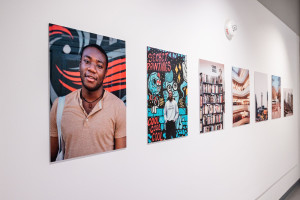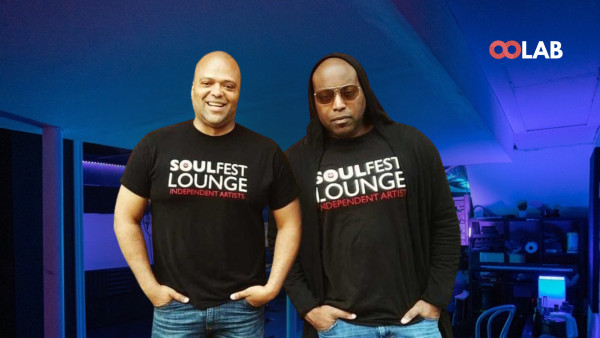Before it was a global movement, it manifested life’s struggles, a culture that embodied grit, determination, and an air of defiance to remain relevant in an ever-changing music industry.
Today, in Canada, the genre’s trajectory continues to struggle to gain mainstream recognition and support despite birthing some of the most exceptional talents (i.e., Drake, PARTYNEXTDOOR, Nav) since hip-hop's inception at a Bronx house party on August 11, 1973.
Why is that?
“So, you're asking a question in 2023 that was the same question being asked in 1984,” says Mark V. Campbell, a DJ, scholar, curator, and one of the participants at the University of Toronto’s Hip-Hop Diaspora (HHD).
“In 1983, when people were lobbying for the Juno Awards to create a category for Black music, that category ended up being Calypso-slash-reggae,” says Campbell about the industry event, which recognizes outstanding achievements in the Canadian music industry.
“I'm not sure how they can compete against one another, but it didn't include funk. Obviously, there was no category for hip-hop until Maestro Fresh-Wes had to win in the dance music category."
The Junos’ rap music category was invented in 1991, when Canadian hip-hop enjoyed a period of success, with Maestro Fresh-Wes, Main Source, and Dream Warriors gaining recognition globally. But it declined in the following decade with zero hits on the Canadian Top 100 Pop Charts.
Then, in 1998, the anthemic collaborative single "Northern Touch" by Rascalz (comprised of rap artists Checkmate, Kardinal Offishall, Thrust, and Choclair) reignited the genre, propelling hip-hop back into the mainstream of Canadian music until the snub at the 1998 Junos.
{https://www.youtube.com/watch?v=SN6jcMruHfA}
Instead of being allowed to give their acceptance speech on stage after winning Best Rap Recording for their album "Cash Crop," they were relegated to a backstage press room during a non-televised portion of the ceremony.
“The Rascalz declining the Junos in 1998 was definitely a watershed moment, and then actually standing up for the lack of infrastructural support for hip-hop because it wasn't televised was a key development in shaping the current landscape,” says Campbell, whose first experience of hip-hop was breaking to Electric Boogaloo.
“But you know, Canada is a large country. It's sparsely populated. And the people that control the media industries are always fighting for attention with American media industries. It's much easier to create content for 330 million people in America, and most of them aren't interested in Canadian content until Degrassi became a thing.”
“So, the folks that couldn't make the decisions in Canada have consistently imagined that the audience for hip-hop or any other Black music was limited to Black communities in this country. That was the argument of the 70s when they weren't supporting Calypso, when they weren't supporting funk, and when they weren't supporting reggae. This is all before the Junos had these categories.”
“The argument to be made was that the market size for any product is limited to the 300,000 Caribbean people in Toronto. Even though this reasoning is flawed, it’s been used as an excuse not to support this music and disregard its potential. So, it's just the same story. I'm not suggesting it's any newness to the story, but there's not a solution just yet. The internet is pretty much the solution.”
The future is global
In celebrating hip-hop's 50th anniversary, Campbell has played an instrumental role in conceptualizing the HHD. The symposium series, which begins November 9-11 across different University of Toronto campuses, features many scholars breaking down the knowledge production practices of hip-hop culture beyond the U.S.
“This event is for practitioners,” explains Pablo D. Herrera Veitia, a post-doctoral fellow, poet, and pioneering Afro-Cuban rap producer who is one of the HHD participants. “But it’s also for students and scholars, and community organizers and people who want to understand and think about this question of knowledge sharing and knowledge production.”
"The importance of gaining access to resources, technology, and sound libraries can’t be overstated," says Veitia, whose early exposure to hip-hop was when he was introduced to Sugarhill Gang’s iconic track, Rapper's Delight, by his aunt.
“The Canadian hip-hop scene serves as a specific example of thriving despite limited resources, even in close proximity to major music industry centres like New York. Canadian hip-hop artists have become influential figures in places like Havana, with connections forged through collaborations and technology.
{https://www.instagram.com/p/Cl3x2_lPpO7/}
Artists like Sol Guy, Khemo, and Nomadic Massive have shared their music for sample libraries, which I have used to create beats that are now popular in the Cuban hip-hop scene.”
From Toronto to Havana, to London and Stockholm, the HHD considers the relationships between hip-hop street culture practices, archiving, and global preservation and aims to provide a way forward.
{https://www.instagram.com/p/Cy_-sG-ug8i/}
“I mean, I would argue that the future of hip-hop in Canada is not actually in Canada,” explains Campbell. “So, this is why we're focusing on the diaspora because hip-hop is global. And hip-hop artists are finding success, as Pablo mentioned. You know, Nomadic Massive and the Rascalz and many Canadians have played in Cuba. And they're booking shows across the world. Daniel Caesar is selling out Australia, and there's no reason for us to, at this moment, contain ourselves within the Canadian borders. There are audiences in Switzerland, Italy and Kenya who will appreciate our music. So, at some point, we must imagine beyond Canada, and I think many artists are doing that already.
You can join Mark V. Campbell, Assistant Professor of Music and Culture at the University of Toronto Scarborough, and Pablo D. Herrera Veitia, Post-Doctoral Fellow at the Afrosonic Innovation Lab, ACM, and the University of Toronto Scarborough, at the Hip-Hop Diaspora event featuring a special guest talk by Fab Five Freddy from November 9-11. For a complete schedule of events, please visit the HHD website.

 By
By 








